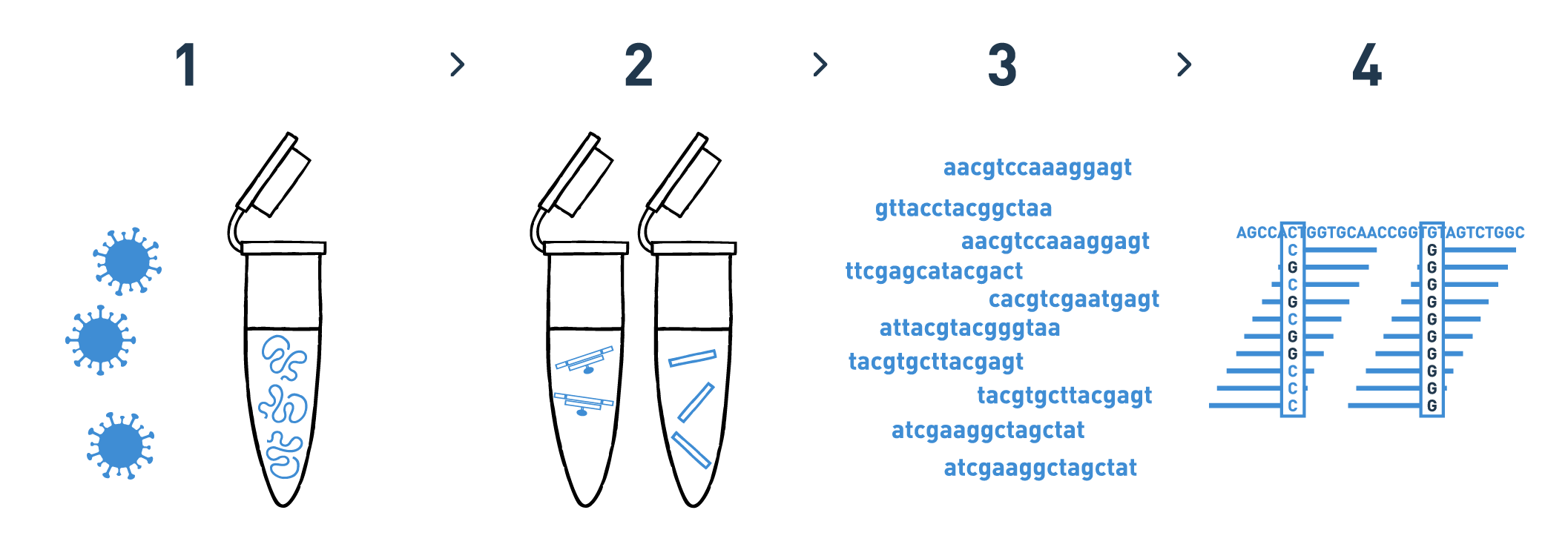Experts in detecting SARS-CoV-2 variants in wastewater by high-throughput sequencing
Screen for and monitor the regional prevalence of SARS-CoV-2 variants with our high-throughput sequencing service
The emergence and proliferation of new SARS-CoV-2 variants, some of which are highly transmissible and pathogenic, constitute a major threat to COVID-19 control strategies. Early identification of SARS-CoV-2 variants is therefore crucial to providing appropriate and timely public health interventions.
Wastewater monitoring has been proven to be a reliable indicator of changes in infection at community-level: Moreover, genome sequencing of sewage can detect circulating SARS-CoV-2 variants that had not been identified previously in clinical patient samples.
Following the European Commission's recommendation of 17 March 2021, wastewater-based genomic surveillance of SARS-CoV-2 and its variants is being implemented across the European Union as a complementary data collection and management tool of the COVID-19 pandemic.
At AllGenetics we perform SARS-CoV-2 genome sequencing from wastewater by applying two alternative target-enrichment methods: hybrid-capture with oligo baits or multiplex tiling PCR. Both methods can potentially recover nearly full-length SARS-CoV-2 genomes and detect co-circulating genetic variants to obtain a comprehensive picture of SARS-CoV-2 genomic diversity at a population scale.

Step 1
We isolate RNA from your samples using tailored isolation protocols.
Step 2
We prepare cDNA libraries and perform viral target enrichment using either the hybrid-capture or the multiplex tiling PCR approach.
Step 3
We sequence the libraries using the Illumina MiSeq technology. The sequencing output will be tailored to your specific project requirements.
Step 4
We analyse the high-throughput sequencing data to identify signature mutations and obtain the consensus viral genomes.
What you receive
- Demultiplexing, pre-processing and quality control of the raw data.
- Read mapping against the reference genome.
- Alignment-based consensus genome sequences.
- A vcf file reporting the occurrence and frequency of all the genetic variants detected in each sample.
What you receive
Your samples appropriately preserved depending on the sample type (ethanol, frozen, or another suitable preservation method). If required, we provide sampling kits and sampling collection guidelines to ensure that your samples arrive at our lab in optimal conditions.